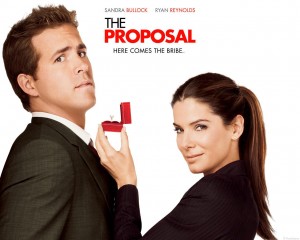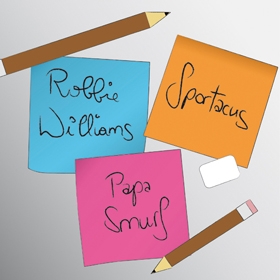Think about the word for a second. The first thing that sprang into my mind was a marriage proposal. Asking someone to marry you involves proposing that you are the best possible person for them to spend the rest of their life with. No wonder people get nervous! To propose is to put yourself on the line.
The other scenario that came to mind was when you’re at a meeting. Someone will come up with an idea, propose it, need someone else to back them up by ‘seconding’ it and even then there will probably be a vote where people consider the relative merits of your proposal and decide whether or not they want to back it. So in making a proposal you are putting yourself out there, believing – or maybe just hoping – that people will support you on the strength of your idea or your persuasive personality. To propose is to be certain – but it also involves taking a risk.
So while there are no clear guidelines, a proposal falls more or less into the category of the language of information. You should get to the point, avoid any waffle or repetition, pay close attention to structure (make sure it’s well laid out and organized) and use clear, concise language to get your message across.
Remember however, that if this proposal is going to be selected from lots of other proposals it will need to be good. You need to argue your case, persuading your audience that you are the best possible candidate and/or your idea is the best possible idea for whatever it is that you are proposing.
- introduce your reason for writing immediately
- in your middle paragraphs describe in detail why you or your idea should be selected
- finish by saying what you’d like to happen next and possibly including details of your phone number, availability.
- relevant experience
- qualifications and/or academic record
- relevant hobbies or voluntary organizations you’re involved with
- personality traits
- focus on the unique selling points of your idea or product
- show that you have done your research (handed out a questionnaire, given away free samples, tested the product or idea on a fairly large/diverse group of people)
- make it clear that you know your target audience – the people who will buy your product or service – and discuss their specific needs and how you can meet their expectations.
- have a financial plan (a set of projected costs and profits compiled into accounts)
- express a belief that this product or service is worth doing, either for financial reward, or for the good of the community or for altruistic reasons (to help others) or if possible all of the above.
Who will do What? When & Why?
Step 1: Introduce you idea. You begin with a brief sentence outlining what it is you propose to do / create and mentioning who it is aimed at.
Step 2: Flesh out the details. The body of the proposal will first offer specific detail on the project, outlining exactly what you propose to do/create, step by step.
Step 3: Include rationale. (1. selling points, 2. research, 3. expectations 4. expertise). This is where you explain why you believe this approach will be effective (in achieving whatever it is the people paying for this project want to achieve). Focus on the unique selling points of your idea. Have you tested this idea on a sample group? Discuss the specific needs of your target audience and how your project will meet their needs and expectations. You may wish to briefly outline why you are the perfect person to lead this project (relevant experience, qualifications, personality).
Step 4: Timeframe and financial plan. Specify how long this project will take from start to finish. Include an estimated cost and mention that a detailed set of accounts for projected costs (and potential profits if applicable) is included in the appendix.








